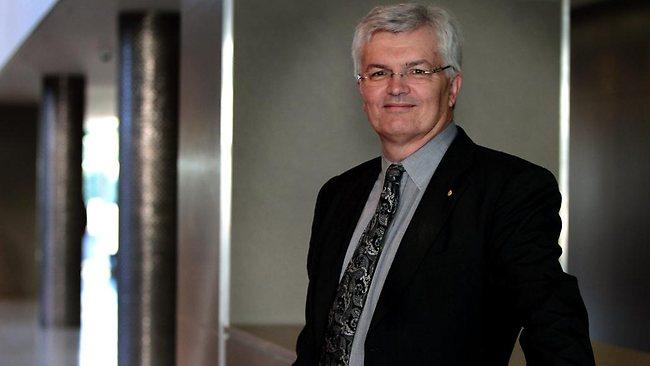University funding cap key to reform plan, says Glyn Davis
OPEN-SLATHER funding for university enrolments must be replaced by a new system that caps funding but allows unis to set their own goals.

OPEN-SLATHER funding for university enrolments, which caused a budget blowout under Labor, must be replaced by an entirely new system that caps funding to institutions but allows them to set their own goals, says Australia's most prominent vice-chancellor.
Melbourne University's Glyn Davis told The Australian an overhaul of the system was needed to give the government budget certainty while allowing universities the freedom to determine the make-up of their student body.
Instead of the government micro-managing student numbers in specific study areas, as it had historically done, universities should be free to determine their own enrolments but within a predetermined funding cap, Professor Davis said.
Critics of Labor's so-called demand-driven system say the policy was equivalent to writing a blank cheque, with the cost expected to reach more than $6.5 billion by 2015.
Federal Education Minister Christopher Pyne is expected to unveil soon details of a review into the demand-driven system.
Before the election, the Coalition indicated it would retain the Labor policy. However, Mr Pyne has repeatedly raised concerns that the recent period of massive growth could lead to a decline in university standards.
Professor Davis recommends moving from a cap on student numbers to a cap on the dollars allocated to each university.
"You can then tell institutions to decide their own student profiles within the funding envelope," he said.
"When the government reviews the demand-driven system, that might be on their minds because it solves all the issues in one go. The government doesn't want to tightly regulate student load, but it does want budget certainty."
Since last year, universities have been able to enrol as many bachelor students as they deem qualified, but the focus on bachelor degrees and the cap on preparatory courses such as diplomas has led to concerns that many academically under-prepared students are enrolling directly into degrees, risking a higher drop-out rate.
At the other end of the spectrum, Melbourne and the University of Western Australia have moved to offer broad undergraduate programs. Professional qualifications are possible only following the completion of a postgraduate masters degree. The government's focus on bachelor degrees means Melbourne has largely missed out on the expansion of government places.
Professor Davis said, after previous budget blow-outs, the indications were that student demand was now flatlining, but a financial cap would be likely to appeal to government because of the budget certainty it brought.
Under the Rudd-Gillard governments, universities witnessed a 34 per cent rise in undergraduate enrolments. Government spending on university places is forecast to rise from $5bn in 2010-11 to $7bn by 2016-17.
A spokesman for Mr Pyne declined to comment on Professor Davis's proposal but said that detail of the review would be released in coming weeks.
Professor Davis's university would be a big beneficiary of his proposal. Unlike undergraduate places, postgraduate places are capped and the only way the university can increase them is by persuading students to pay full fees, which currently range between $18,000 for an education masters program and $55,000 a year for medicine.
Others say that allowing universities to allocate government subsidies freely would exacerbate credentialism and lengthen the amount of time spent in education.
"I'm concerned that the expansion of postgraduate places through qualification creep has gone too far," said Queensland University of Technology vice-chancellor Peter Coaldrake.
Sandra Harding, vice-chancellor of James Cook University and chairwoman of Universities Australia, said the sector's view remained that the demand-driven system should be retained but that it was "reasonable" for a new government to review it.


